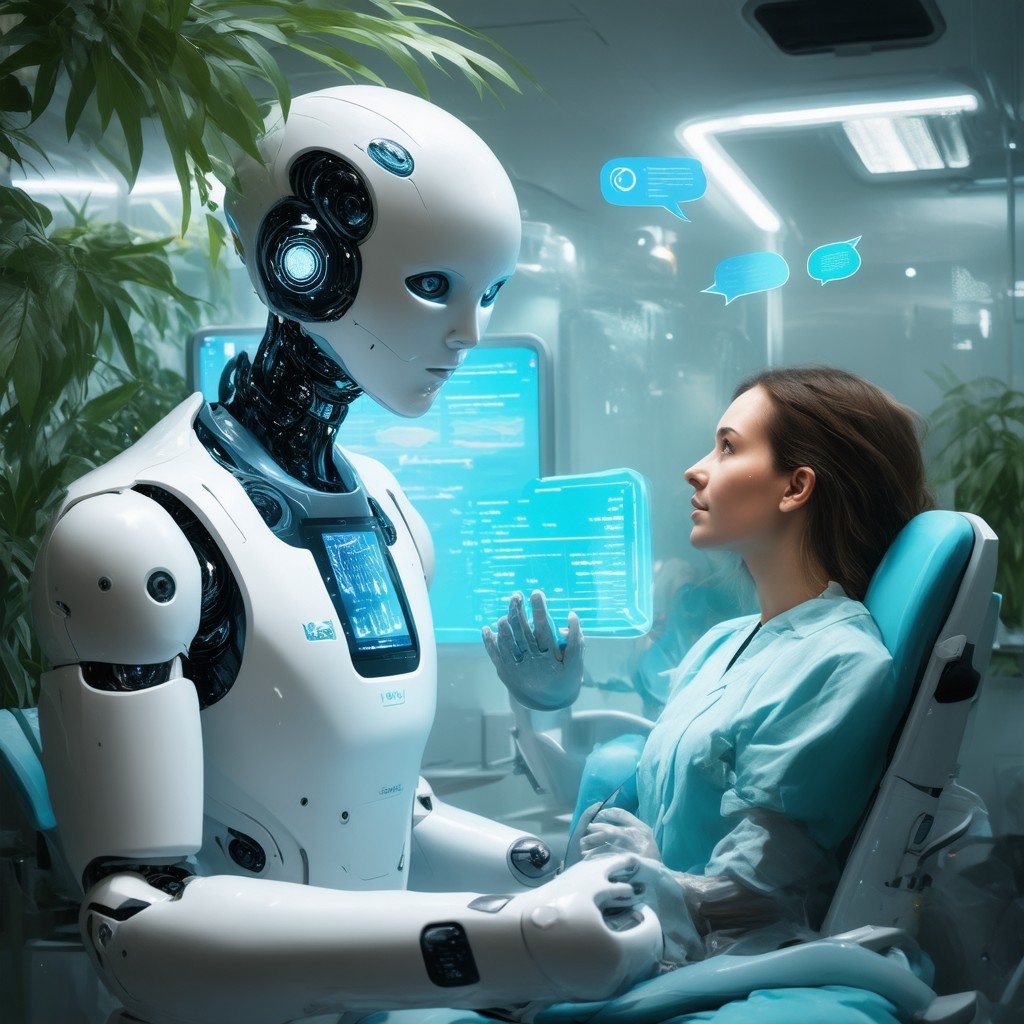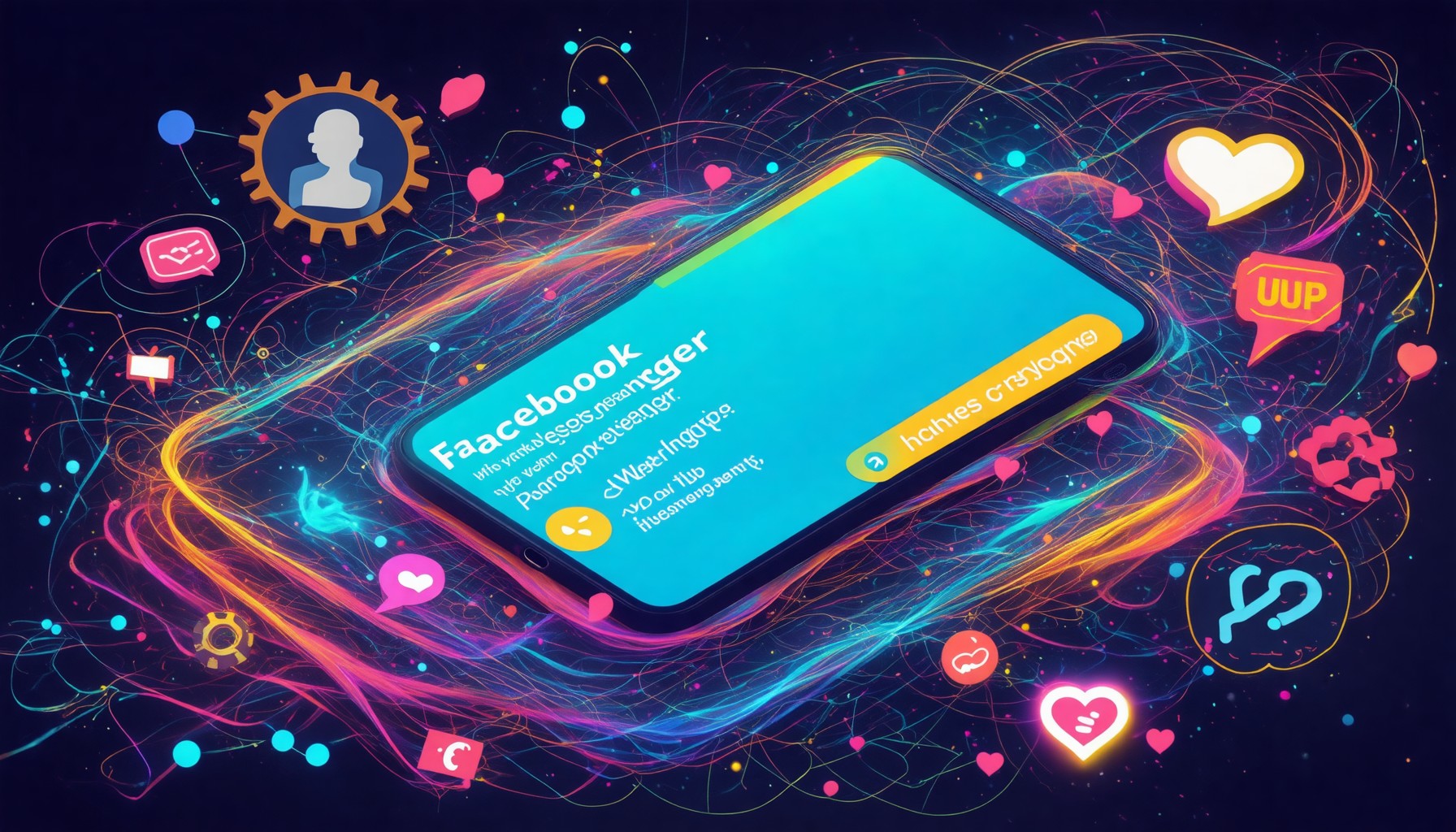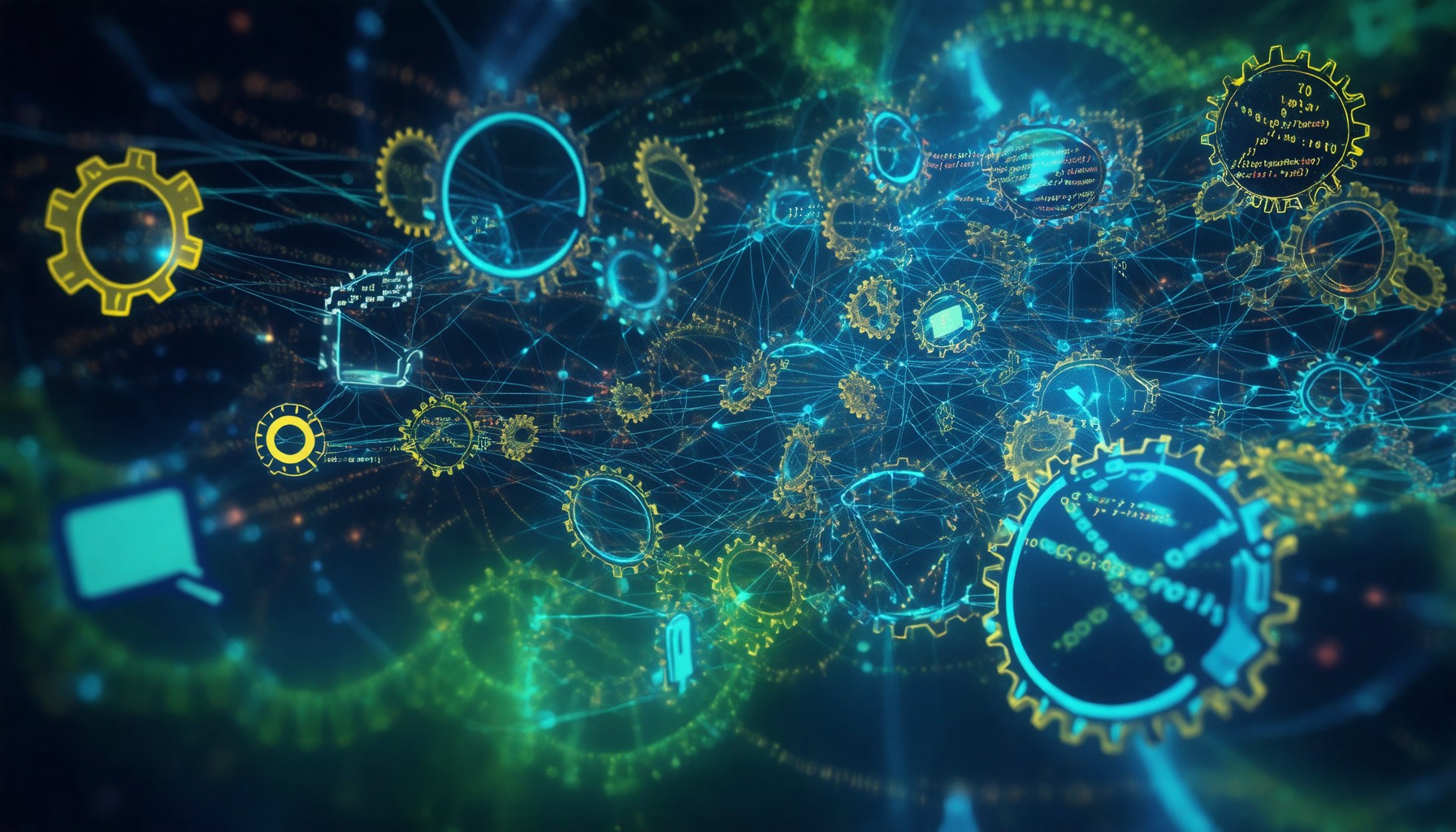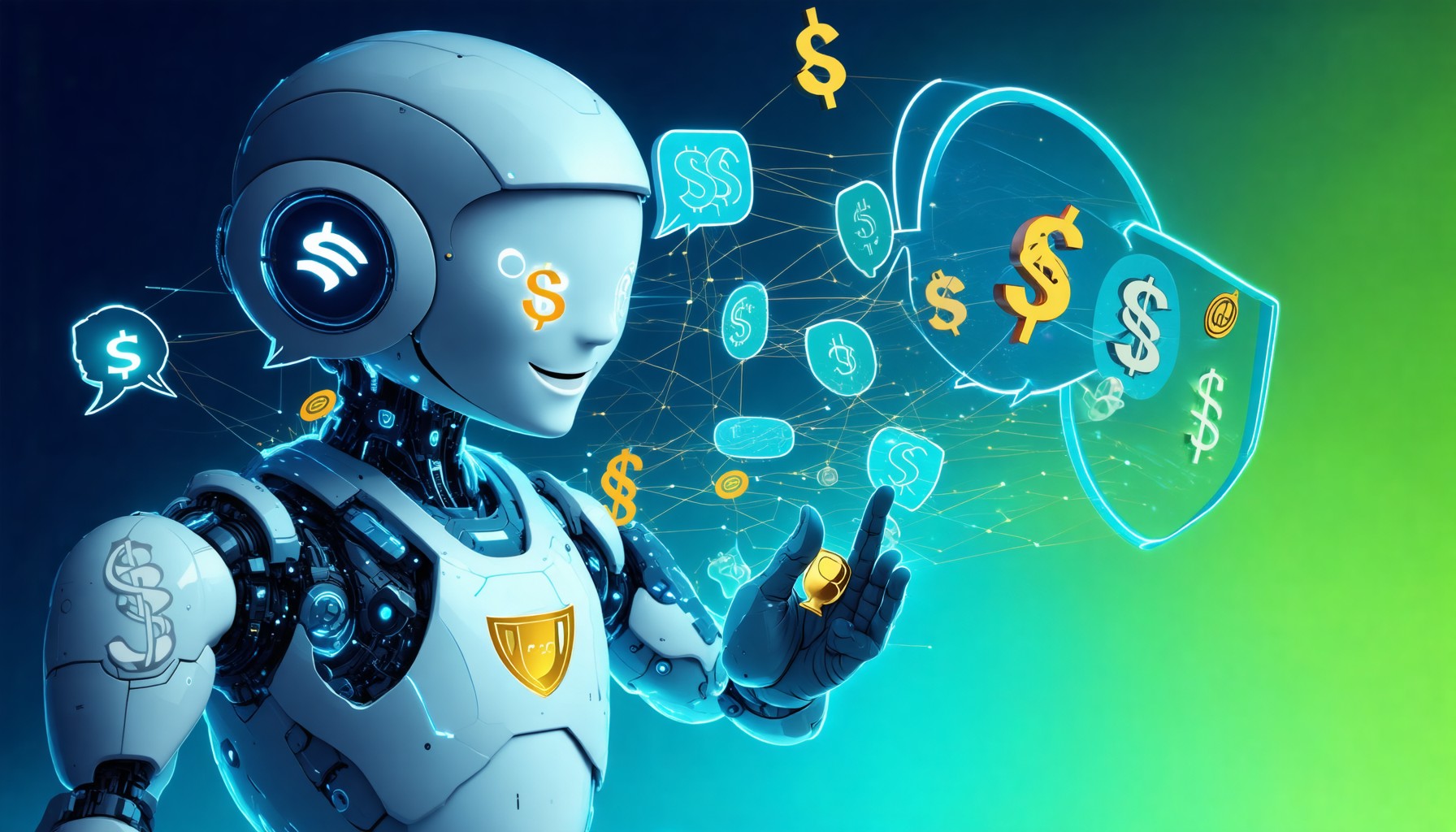Key Takeaways
- Transformative Tools: Chatbot medical solutions are revolutionizing healthcare by enhancing patient interaction and streamlining processes.
- 24/7 Availability: Medical chatbots provide round-the-clock assistance, ensuring patients have access to crucial health information anytime.
- Cost Efficiency: By automating routine tasks, medical chatbots help reduce operational costs for healthcare providers, allowing for better resource allocation.
- Enhanced Patient Engagement: Chatbots foster continuous communication with patients, improving their overall engagement and adherence to treatment plans.
- Diverse Applications: From symptom assessment to appointment scheduling and mental health support, chatbots serve various crucial functions in healthcare.
- AI Advancements: The integration of machine learning enhances the capabilities of medical chatbots, making them more responsive and accurate over time.
In the rapidly evolving landscape of healthcare, chatbot medical solutions are emerging as transformative tools that enhance patient interaction and streamline medical processes. This article delves into the multifaceted world of medical chatbots, exploring their functionality, benefits, and the various types available. We will examine the best AI medical chatbots, including free options, and highlight notable examples that showcase their effectiveness in real-world applications. Additionally, we will address the question of whether there is a ChatGPT for medical purposes and how this technology can elevate patient engagement. By the end of this exploration, you will gain valuable insights into the future of medical AI chatbots and their pivotal role in transforming healthcare delivery. Join us as we uncover the key features, limitations, and use cases of these innovative solutions, setting the stage for a deeper understanding of their impact on the medical field.
What are medical chatbots?
Understanding the Functionality of Medical Chatbots
Medical chatbots are AI-driven applications designed to interact with users through natural language processing, providing a range of services in the healthcare sector. Their primary functions include:
- Symptom Assessment: Chatbots can analyze user-reported symptoms and suggest possible conditions, guiding patients to seek appropriate care. For instance, platforms like Buoy Health utilize algorithms to triage symptoms effectively.
- Appointment Scheduling: Many chatbots streamline the process of booking appointments, reducing administrative burdens for healthcare providers. They can integrate with existing scheduling systems to offer real-time availability.
- Medication Management: Chatbots remind patients to take medications, track adherence, and provide information on drug interactions, which is crucial for chronic disease management.
- Mental Health Support: A significant application of medical chatbots is in mental health, where they offer preliminary screening and support through conversational interfaces. Studies, such as those by Afsahi et al., highlight their effectiveness in providing immediate assistance and resources.
- Public Health Information: Chatbots play a vital role in disseminating public health information, especially during health crises like the COVID-19 pandemic, where they can provide updates and answer common questions.
Recent advancements in AI technology have enhanced the capabilities of medical chatbots, making them more responsive and accurate. For example, the integration of machine learning allows these bots to learn from interactions and improve over time, thereby increasing their reliability.
Benefits of Using Medical Chatbots in Healthcare
Implementing medical chatbots in healthcare offers numerous advantages:
- 24/7 Availability: Medical chatbots provide round-the-clock assistance, ensuring that patients can access information and support whenever they need it.
- Cost Efficiency: By automating routine tasks, chatbots reduce operational costs for healthcare providers, allowing them to allocate resources more effectively.
- Enhanced Patient Engagement: Chatbots facilitate continuous interaction with patients, fostering a more engaged and informed patient population.
- Data Collection and Analysis: Chatbots can gather valuable data on patient interactions, helping healthcare providers understand patient needs and improve services.
- Scalability: As demand for healthcare services increases, chatbots can easily scale to handle a larger volume of inquiries without compromising service quality.
In conclusion, medical chatbots are transforming healthcare delivery by providing accessible, efficient, and timely support to patients, ultimately improving health outcomes and patient engagement. For further reading, refer to the research by Afsahi et al. and other studies published in healthcare journals.

What are medical chatbots?
Understanding the Functionality of Medical Chatbots
Medical chatbots are AI-driven tools designed to enhance patient interaction and streamline healthcare communication. They function by providing automated responses to user inquiries, guiding patients through symptom assessments, and offering personalized health information. By leveraging advanced algorithms and vast medical databases, these medical AI chatbots can deliver tailored insights, making healthcare more accessible and efficient.
Benefits of Using Medical Chatbots in Healthcare
The integration of medical chatbots into healthcare systems offers numerous advantages. They improve patient engagement by providing instant responses to health-related queries, which can lead to better health outcomes. Additionally, medical chatbots can help reduce the workload on healthcare professionals by handling routine inquiries and administrative tasks. This allows medical staff to focus on more complex patient needs. Furthermore, the use of free chatbot medical solutions can significantly lower operational costs for healthcare providers, making advanced technology accessible to a wider range of facilities.
Which AI chatbot is best for medical?
Top Features of the Best Medical AI Chatbots
When considering the best AI chatbots for medical applications in 2025, it’s essential to evaluate their capabilities in enhancing patient care, streamlining communication, and providing reliable health information. Here are six of the top healthcare chatbots that are transforming patient interactions:
- Ada Health: This AI-powered chatbot offers personalized health assessments based on user symptoms. Ada uses a vast medical database and machine learning to provide users with tailored health insights and recommendations. Studies show that Ada can significantly improve patient engagement and satisfaction (source: Journal of Medical Internet Research).
- Buoy Health: Buoy is designed to help users navigate their health concerns by asking a series of questions to guide them to the appropriate care. Its user-friendly interface and evidence-based approach make it a valuable tool for both patients and healthcare providers (source: Health Affairs).
- Woebot: Focused on mental health, Woebot utilizes cognitive-behavioral therapy principles to support users in managing their mental well-being. Research indicates that Woebot can effectively reduce symptoms of anxiety and depression, making it a crucial resource in mental health care (source: Journal of Medical Internet Research).
- Maven: This chatbot specializes in women’s and family health, providing support for fertility, pregnancy, and parenting. Maven connects users with healthcare professionals and offers personalized advice, making it a comprehensive resource for family health (source: American Journal of Obstetrics and Gynecology).
- Livi: Livi allows patients to consult with doctors via video chat, making healthcare more accessible. Its integration with various health systems ensures that patients receive timely and relevant medical advice, enhancing the overall patient experience (source: British Medical Journal).
- HealthTap: This platform combines AI with a network of doctors to provide users with immediate answers to health questions. HealthTap’s chatbot can triage symptoms and recommend next steps, making it an essential tool for urgent care (source: American Journal of Managed Care).
These chatbots exemplify the integration of AI in healthcare, improving patient outcomes and streamlining healthcare delivery. As technology evolves, these tools will continue to play a pivotal role in transforming the healthcare landscape.
Comparing Free Medical Chatbot Options
For those exploring medical chatbot free options, it’s crucial to assess their features and limitations. Many free medical chatbots offer basic functionalities, such as symptom checking and appointment scheduling, but may lack advanced capabilities like personalized health assessments or integration with electronic health records. Evaluating these options can help healthcare providers choose the right solution that meets their needs while staying within budget.
Understanding the Functionality of Medical Chatbots
Medical chatbots are designed to streamline healthcare interactions by providing automated responses and support to patients and healthcare providers. These medical ai chatbots utilize advanced algorithms to understand user inquiries and deliver relevant information efficiently. By integrating natural language processing (NLP), they can interpret patient queries, offer symptom assessments, and guide users through healthcare processes.
One of the core functionalities of chatbot medical solutions is their ability to operate 24/7, ensuring that patients receive timely assistance regardless of the hour. This constant availability can significantly enhance patient engagement and satisfaction, as users can access information and support without waiting for human intervention. Furthermore, medical chatbots can be programmed to handle a variety of tasks, such as appointment scheduling, medication reminders, and follow-up care instructions, making them invaluable tools in modern healthcare.
Benefits of Using Medical Chatbots in Healthcare
The integration of medical chatbots into healthcare systems offers numerous benefits that can transform patient care and operational efficiency. Here are some key advantages:
- Cost Efficiency: By automating routine inquiries and administrative tasks, medical chatbots can reduce the workload on healthcare staff, allowing them to focus on more complex patient needs. This can lead to significant cost savings for healthcare facilities.
- Improved Patient Access: Medical chatbot online solutions provide patients with immediate access to information and support, which is particularly beneficial in underserved areas where healthcare resources may be limited.
- Enhanced Patient Engagement: Chatbots can facilitate ongoing communication with patients, providing personalized health tips and reminders that encourage adherence to treatment plans.
- Data Collection and Analysis: Medical chatbots can gather valuable patient data, which can be analyzed to improve healthcare services and identify trends in patient health.
As healthcare continues to evolve, the role of medical ai chatbots will likely expand, offering innovative solutions that enhance both patient experiences and healthcare delivery.
What are the Three Types of Chatbots?
Understanding the different types of medical chatbots is essential for leveraging their capabilities effectively in healthcare settings. Medical chatbots can be categorized into three main types, each serving unique functions and purposes.
Overview of Medical Chatbot Types
- Rule-Based Chatbots: These chatbots operate on predefined rules and scripts. They are designed to answer specific questions and guide users through a set of options. While they can handle straightforward inquiries, their functionality is limited to the scenarios programmed into them.
- AI-Powered Chatbots: Utilizing machine learning and natural language processing, AI medical chatbots can understand and respond to a broader range of inquiries. They learn from interactions, allowing them to provide more personalized responses over time. This adaptability makes them suitable for complex patient interactions.
- Hybrid Chatbots: Combining the strengths of both rule-based and AI-powered chatbots, hybrid models can handle simple queries while also learning from user interactions. This versatility allows them to provide a more comprehensive support experience, making them ideal for healthcare applications.
Use Cases for Each Type of Medical Chatbot
Each type of medical chatbot has distinct use cases that can enhance patient engagement and streamline healthcare processes:
- Rule-Based Chatbots: Often used for appointment scheduling and answering frequently asked questions, these chatbots can efficiently manage routine tasks, freeing up healthcare staff for more complex duties.
- AI-Powered Chatbots: These chatbots are ideal for providing personalized health advice, symptom checking, and medication reminders. Their ability to learn from interactions allows them to adapt to individual patient needs.
- Hybrid Chatbots: Best suited for comprehensive patient support, hybrid chatbots can assist with triaging symptoms, guiding patients through treatment options, and providing follow-up care instructions.
By understanding the types of medical chatbots and their respective use cases, healthcare providers can select the most suitable solutions to enhance patient care and operational efficiency.

What are the three types of chatbots?
Understanding the different types of chatbots is essential for leveraging their capabilities in healthcare. There are three primary types of chatbots, each serving distinct purposes and functionalities:
- Rule-Based Chatbots: These chatbots operate on predefined rules and scripts. They follow a decision tree model, where user inputs are matched against a set of predetermined responses. Rule-based chatbots are effective for simple queries and tasks, such as FAQs or basic customer service inquiries. However, their limitations arise in handling complex conversations or unexpected questions. According to a study by Gartner, rule-based chatbots can handle up to 70% of customer inquiries without human intervention, making them a cost-effective solution for businesses.
- AI-Powered Chatbots: Utilizing natural language processing (NLP) and machine learning, AI-powered chatbots can understand and respond to user queries in a more conversational manner. They learn from interactions, improving their responses over time. This type of chatbot is ideal for more complex tasks, such as personalized customer support or engaging users in meaningful conversations. Research from IBM indicates that AI chatbots can reduce operational costs by up to 30% while enhancing customer satisfaction.
- Hybrid Chatbots: Combining the strengths of both rule-based and AI-powered chatbots, hybrid chatbots can switch between scripted responses and AI-driven interactions based on the context of the conversation. This flexibility allows them to handle a wider range of inquiries effectively. For example, they can provide immediate answers to straightforward questions while escalating more complex issues to human agents when necessary. A report by Juniper Research suggests that hybrid chatbots will dominate the market due to their versatility and efficiency.
Use Cases for Each Type of Medical Chatbot
Each type of medical chatbot has specific use cases that enhance healthcare delivery:
- Rule-Based Chatbots: Ideal for appointment scheduling, medication reminders, and answering common health-related questions. They streamline administrative tasks, allowing healthcare providers to focus on patient care.
- AI-Powered Chatbots: Best suited for triaging symptoms, providing personalized health advice, and facilitating follow-up care. These chatbots can analyze patient data to offer tailored recommendations, improving patient outcomes.
- Hybrid Chatbots: Effective in managing complex patient interactions, such as handling insurance inquiries while providing immediate responses to simple questions. They ensure a seamless transition between automated and human support, enhancing the overall patient experience.
What is an example of a healthcare chatbot?
An example of a healthcare chatbot is the Babylon Health chatbot, which provides users with medical advice based on their symptoms. This AI-driven platform allows patients to interact with the chatbot to assess their health concerns and receive personalized recommendations. Other notable healthcare chatbots include:
- Buoy Health: This chatbot helps users navigate their symptoms and directs them to appropriate care options.
- Woebot: A mental health chatbot that offers cognitive behavioral therapy techniques to users, helping them manage their emotional well-being.
- Ada Health: This chatbot uses a sophisticated algorithm to evaluate symptoms and suggest possible conditions, enhancing patient engagement.
- Mayo Clinic Chatbot: Provides users with reliable health information and connects them to healthcare professionals when necessary.
- LIVI: A virtual healthcare service that allows users to consult with doctors via chat, making healthcare more accessible.
- HealthTap: Offers a chatbot that provides answers to health questions and connects users with doctors for further assistance.
- Your.MD: This chatbot helps users understand their health symptoms and provides personalized health information.
- K Health: Uses AI to provide users with insights based on their symptoms and connects them with healthcare professionals.
- Ginger: A mental health chatbot that offers support and resources for users dealing with anxiety and depression.
- Cleo: A chatbot designed for maternal health, providing support and information to expectant mothers.
These chatbots exemplify how technology is transforming healthcare by improving patient access to information and services. For further reading on the impact of chatbots in healthcare, refer to the National Center for Biotechnology Information (NCBI) article on the subject.
Case Studies of Successful Medical Chatbot Implementations
Several healthcare organizations have successfully implemented medical chatbots to enhance patient care and streamline operations. For instance, the Mayo Clinic has integrated a chatbot that assists users in finding reliable health information and connecting them with healthcare professionals. This implementation has improved patient engagement and satisfaction by providing immediate responses to health inquiries.
Another notable example is Buoy Health, which has demonstrated significant success in guiding users through their symptoms and directing them to appropriate care options. By utilizing AI technology, Buoy Health has effectively reduced unnecessary visits to healthcare facilities, optimizing resource allocation and improving patient outcomes.
These case studies highlight the potential of medical chatbots to transform healthcare delivery, making it more efficient and accessible for patients. For more insights on chatbot functionalities, explore our chatbot features page.
What is an example of a healthcare chatbot?
Healthcare chatbots are increasingly becoming integral to patient care, providing support and information in real-time. One notable example is the Mayo Clinic’s chatbot, which assists users in finding medical information and scheduling appointments. This medical chatbot utilizes advanced AI algorithms to deliver personalized responses based on user inquiries, enhancing the overall patient experience.
Notable Medical Chatbot Examples
- Babylon Health: This AI medical chatbot offers symptom checking and telehealth services, allowing users to consult with healthcare professionals via chat.
- Buoy Health: Buoy’s chatbot guides users through a series of questions to help them understand their symptoms and recommend appropriate care.
- HealthTap: This platform provides a medical chatbot that connects users with doctors for virtual consultations, ensuring timely medical advice.
Case Studies of Successful Medical Chatbot Implementations
Several healthcare organizations have successfully implemented medical chatbots to improve patient engagement and streamline operations:
- Northwell Health: By integrating a chatbot into their patient portal, Northwell Health has seen a significant increase in appointment bookings and reduced wait times for patient inquiries.
- HCA Healthcare: HCA’s chatbot assists patients in navigating their services, resulting in enhanced patient satisfaction and operational efficiency.
- Mount Sinai Health System: Their chatbot provides 24/7 access to health information, helping to alleviate pressure on staff during peak hours.




